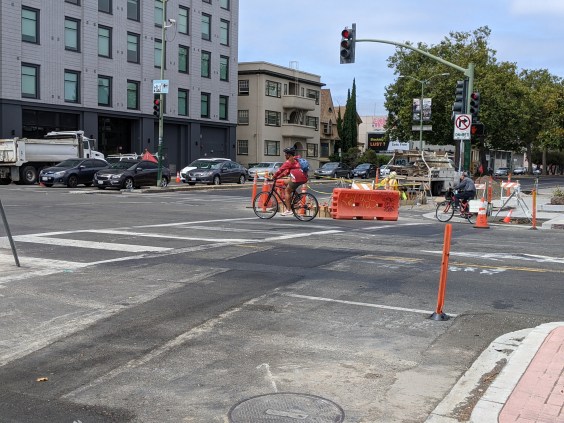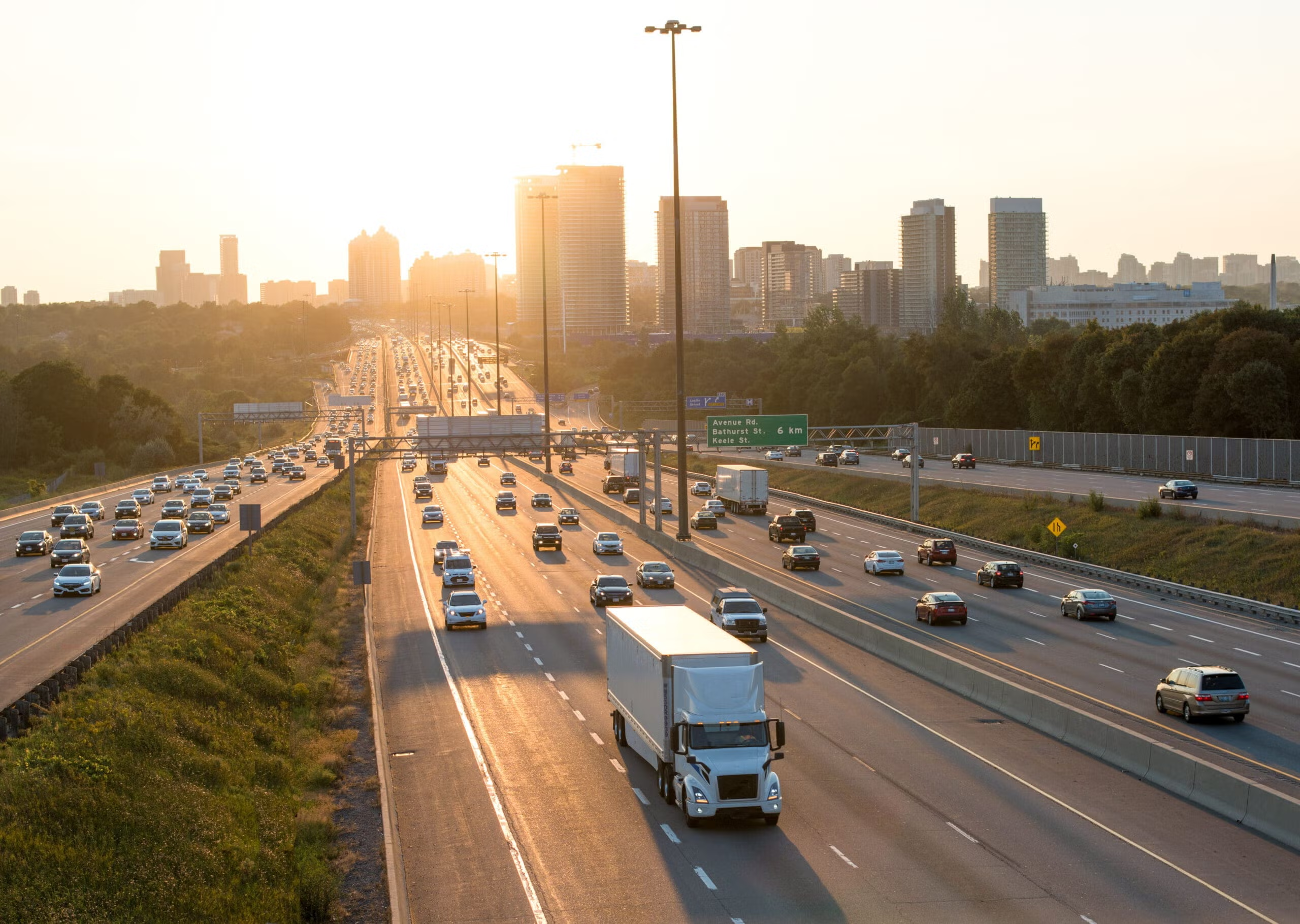The Bay Area is getting closer to having its first protected bike lane AND intersection project in a merchant corridor completed. Despite what merchants feared, Armageddon has not yet commenced!
It may not look like much now, but the intersection of Telegraph and Grand in Oakland is getting a major improvement.
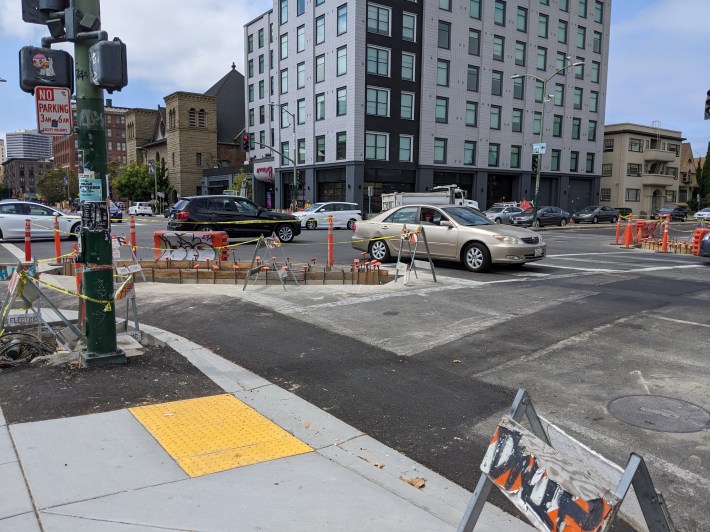
In late July Streetsblog joined forces with StreetFilms to give an update on the installation of the concrete-curb-and-island protected bike lanes on Telegraph in the KONO district of Oakland.
City of Oakland Public Works is already onto the next phase of the work: a top-notch protected intersection at Grand and Telegraph. 27th will also get one.
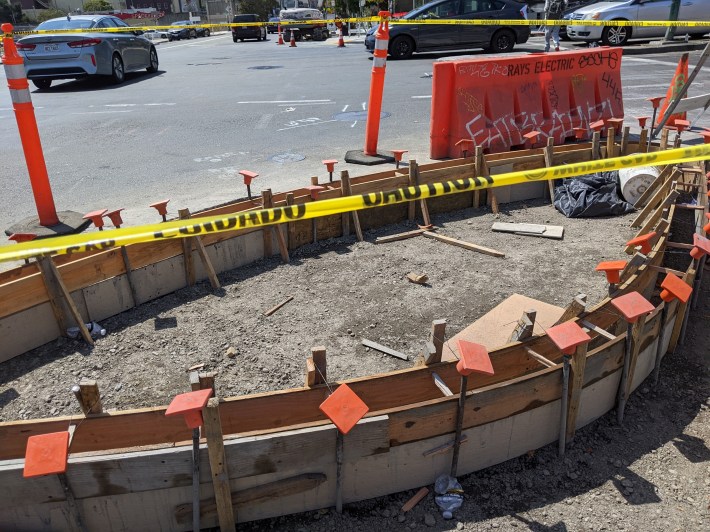
"I'm glad to see protected intersections becoming a standard part of protected bikeway design, and once these two on Telegraph are done we will be closing in on 30 altogether throughout the East Bay, with many more in the works," wrote Bike East Bay's Robert Prinz, in an email to Streetsblog.
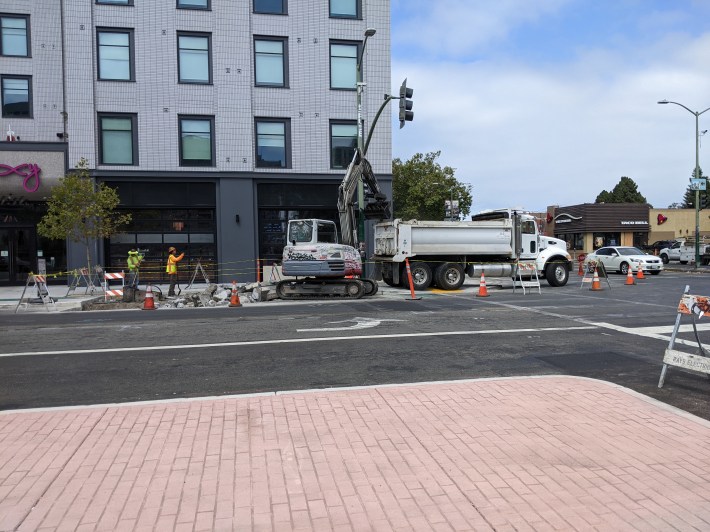
Unfortunately, Oakland--like many Bay Area cities--can be weirdly inconsistent about protection projects for cyclists. As Streetsblog has covered, sometimes the city builds protected intersections but not lanes to interface with them, such as on West Street. While better than nothing, the two design elements are supposed to work together. It also invites scofflaw motorists to park in and block the intersection entrances.
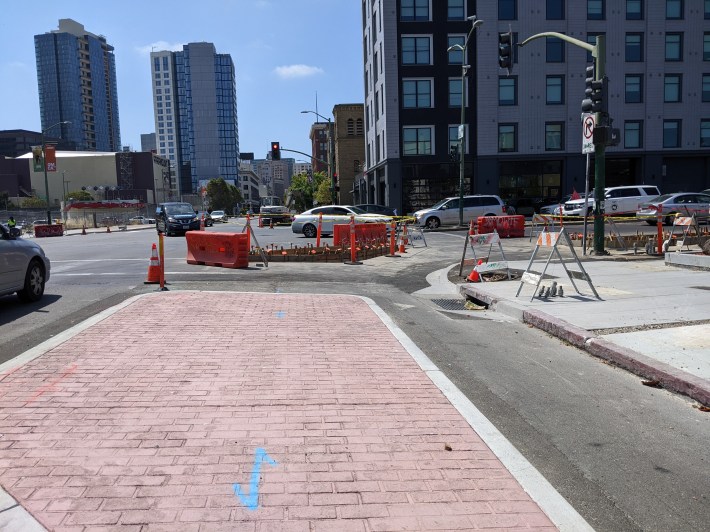
Still, it's reassuring to see more and more examples cropping up in the Bay Area of truly safe bike lanes and intersections now done in concrete. There are plenty of examples of parking-protected bike lanes, but they invariably fall down at the intersection, where the protection disappears and cyclists are thrown out into merging traffic, protected by plastic, paint, and luck.
Fremont was perhaps the first to change this pattern and go all the way with Walnut Street, with protected intersections and raised and protected bike lanes. Ironically, San Francisco was one of the first cities in the Bay Area to build a protected intersection in concrete, at 9th and Division. However, they only built protection on two rather than four of the corners and it interfaces with unprotected bike lanes in all but one direction. San Francisco also started in the right direction on Valencia, planning protected lanes and intersections for most of the street before abandoning the project in favor of a center-running design that goes against all global best practices.
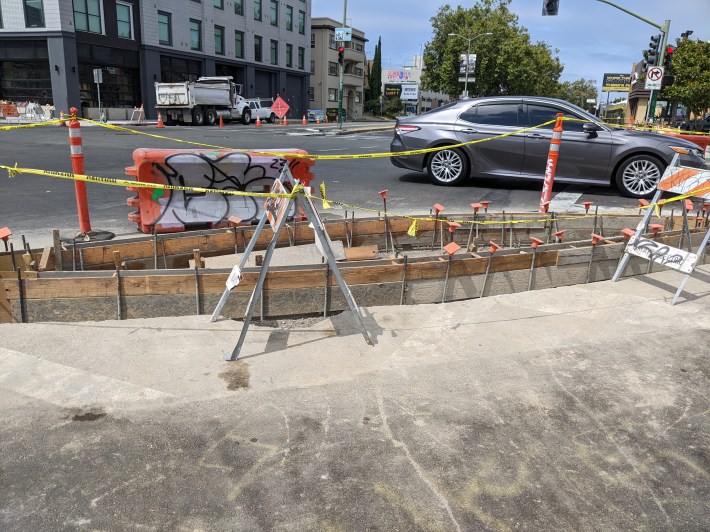
Fortunately, thanks to the hard work of Oakland DOT and the steadfast commitment of Oakland advocates, things are moving continually forward on Telegraph. "Bike East Bay has been working to make sure the learning curve goes faster in other cities by sharing info about what Oakland, Fremont, and Alameda have been building with other jurisdictions, and to make sure cities return to upgrade older installations when resources allow (as will be happening at Madison/8th)," said Prinz, who is excited to see the Telegraph project getting finished. "Other than the protected intersections there is still some signal work, paving, signage, and striping left to do, so I hope it can all get wrapped up before the rainy season starts."
Protected intersections and lanes simply must become the default whenever a street is repaved or rebuilt. As impressive as this work is, it's a travesty that these proven designs aren't universally adopted when new roadwork is done.
If you're new to protected intersections, a standard intersection treatment adapted from the Netherlands, here's a primer from the city of San Luis Obispo
